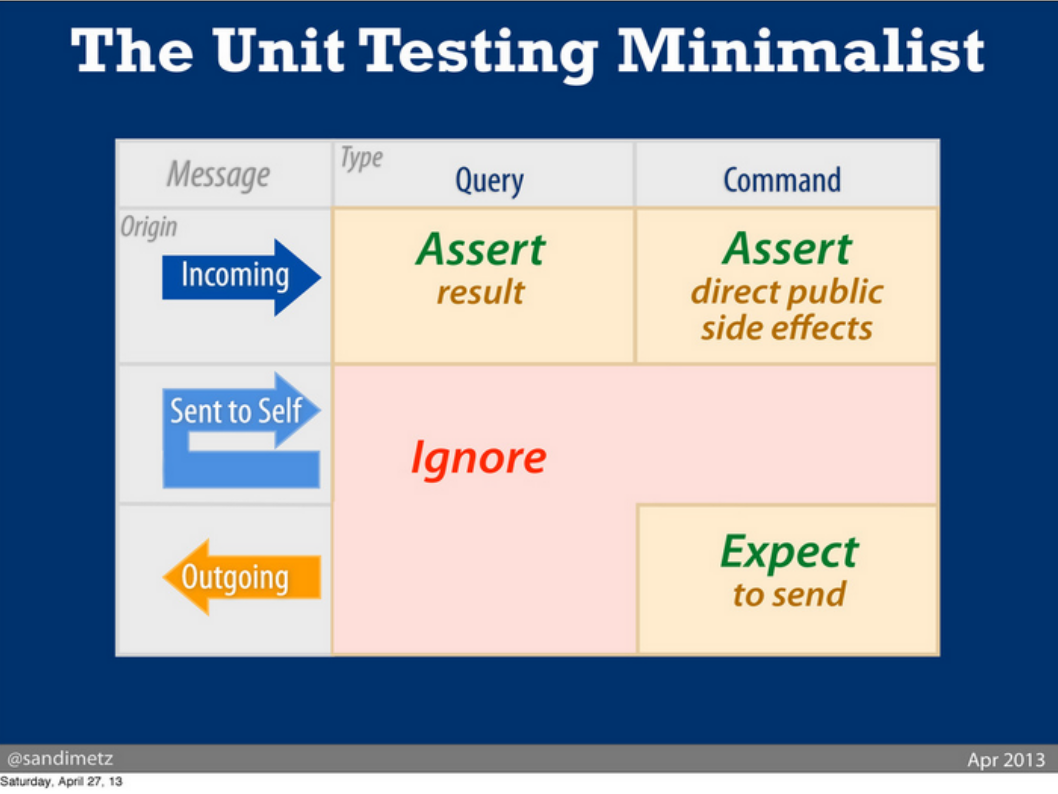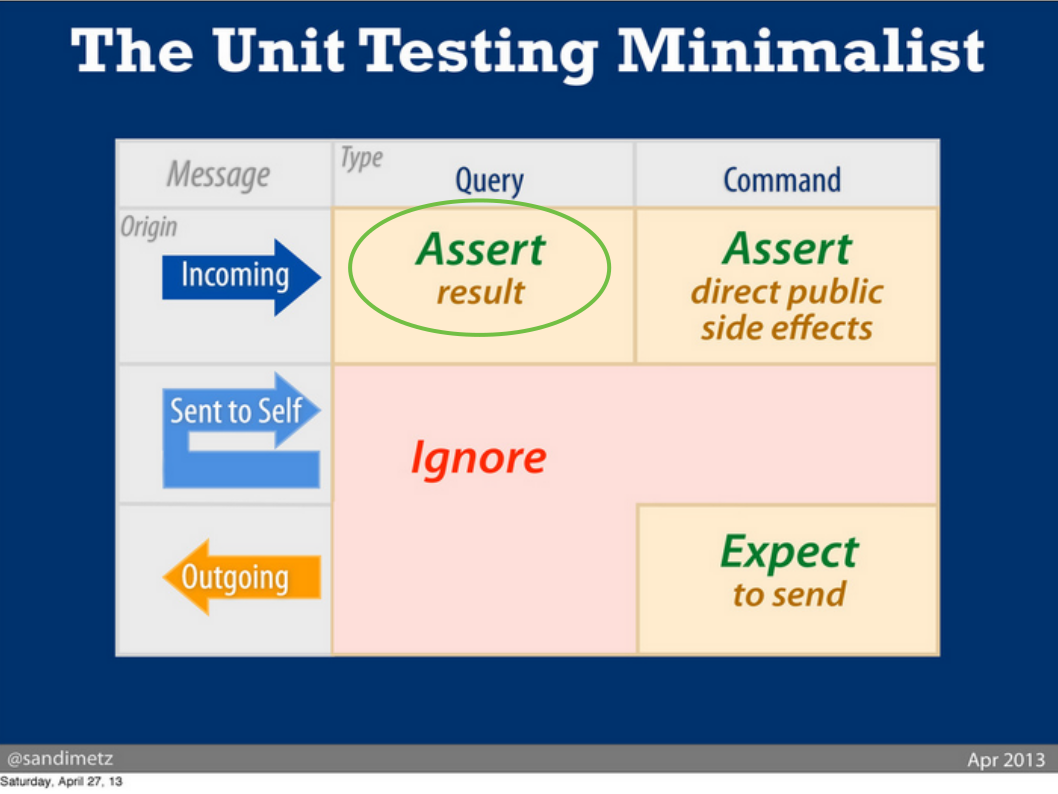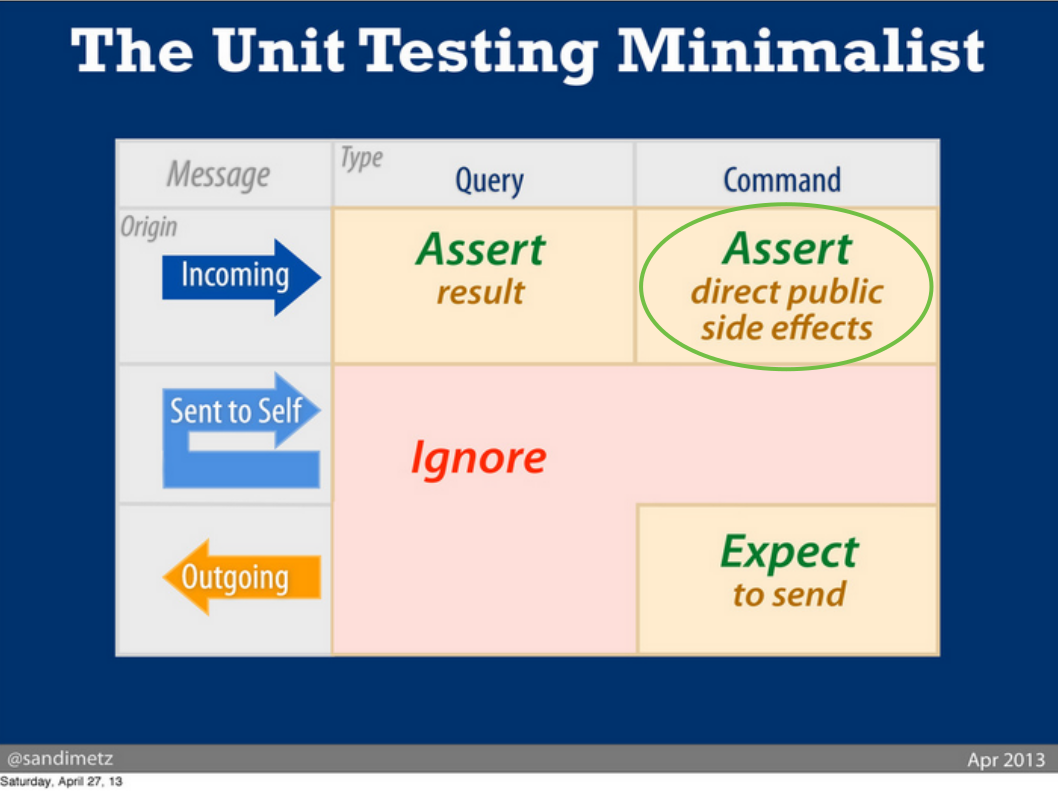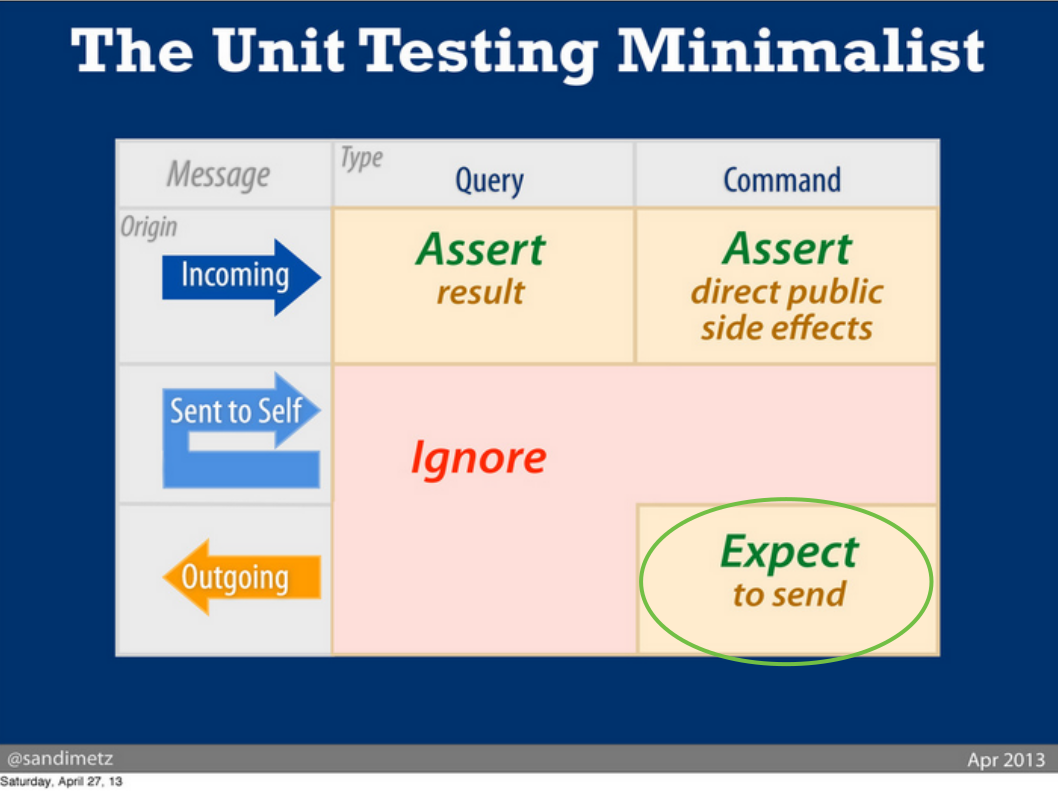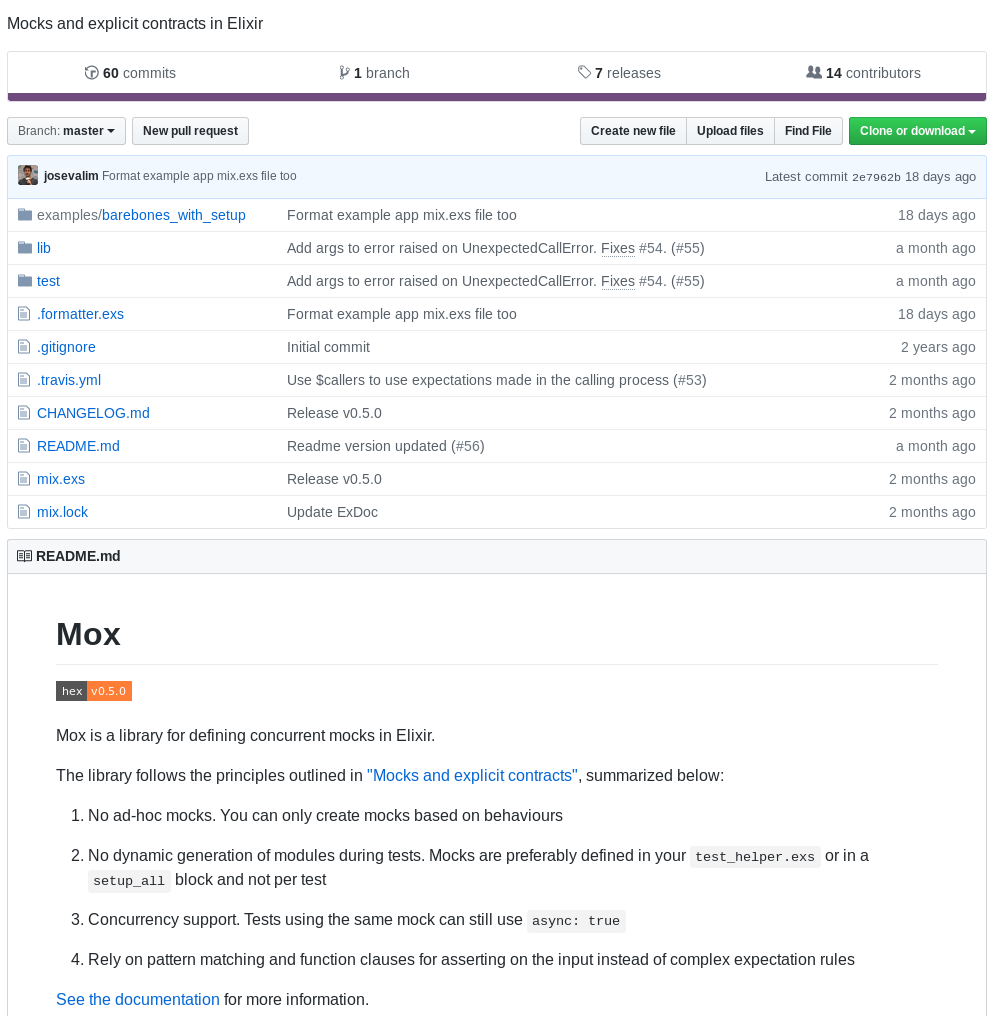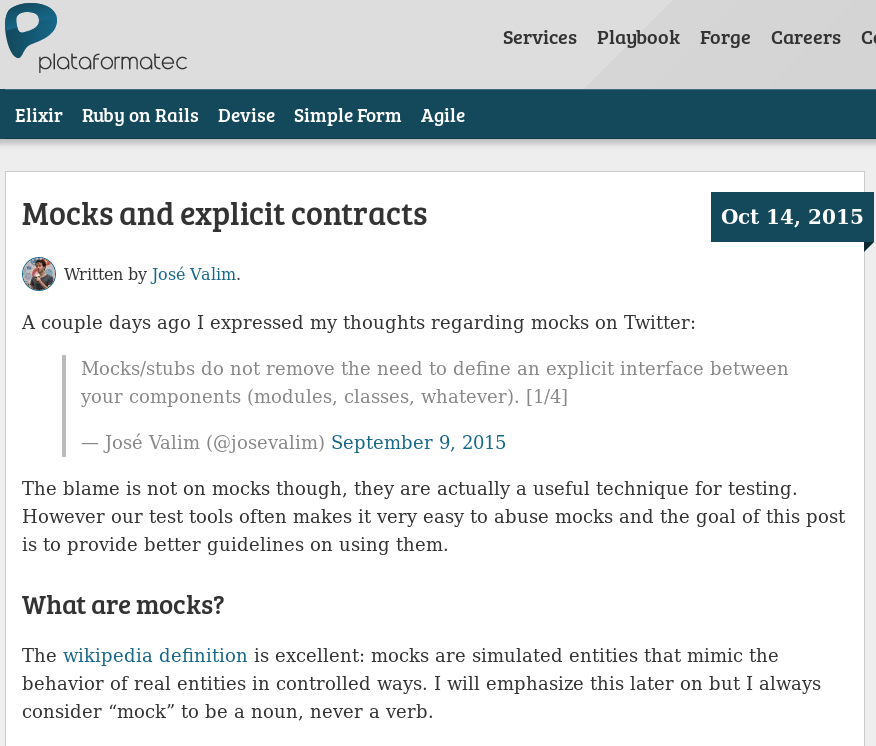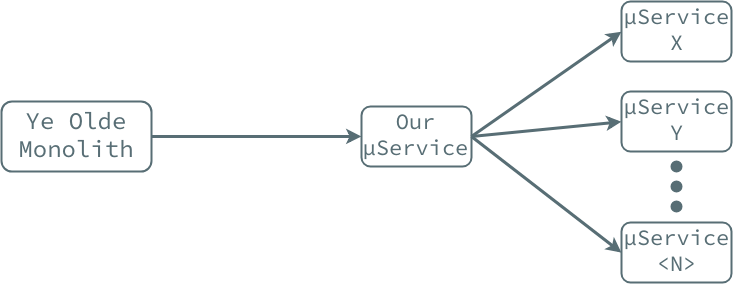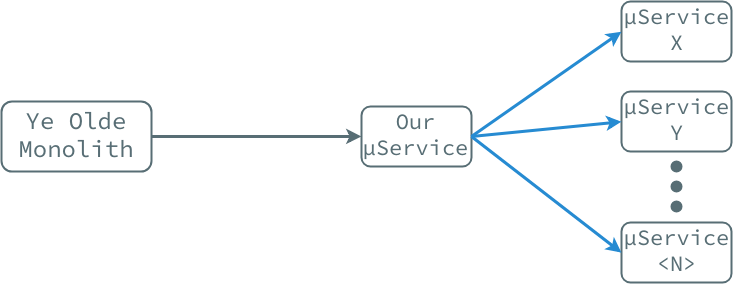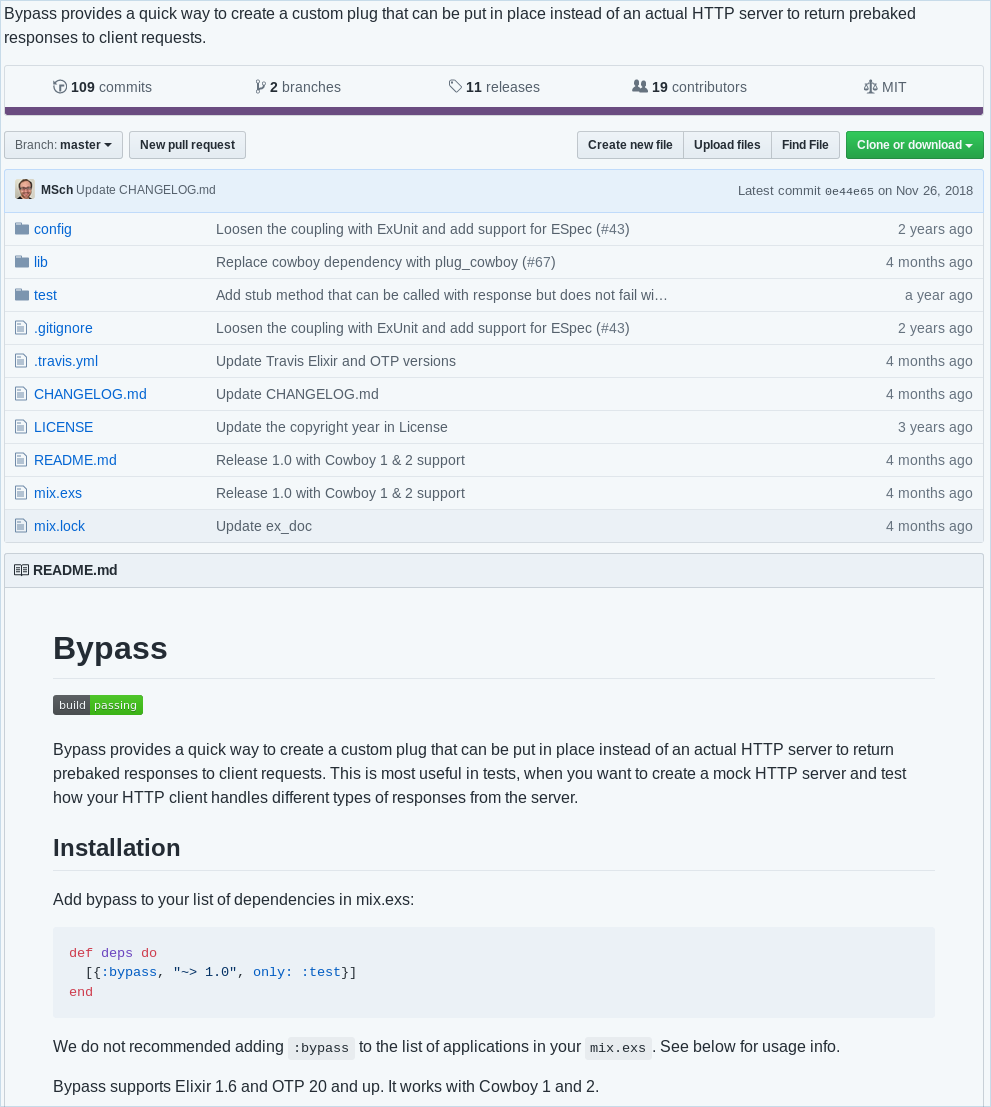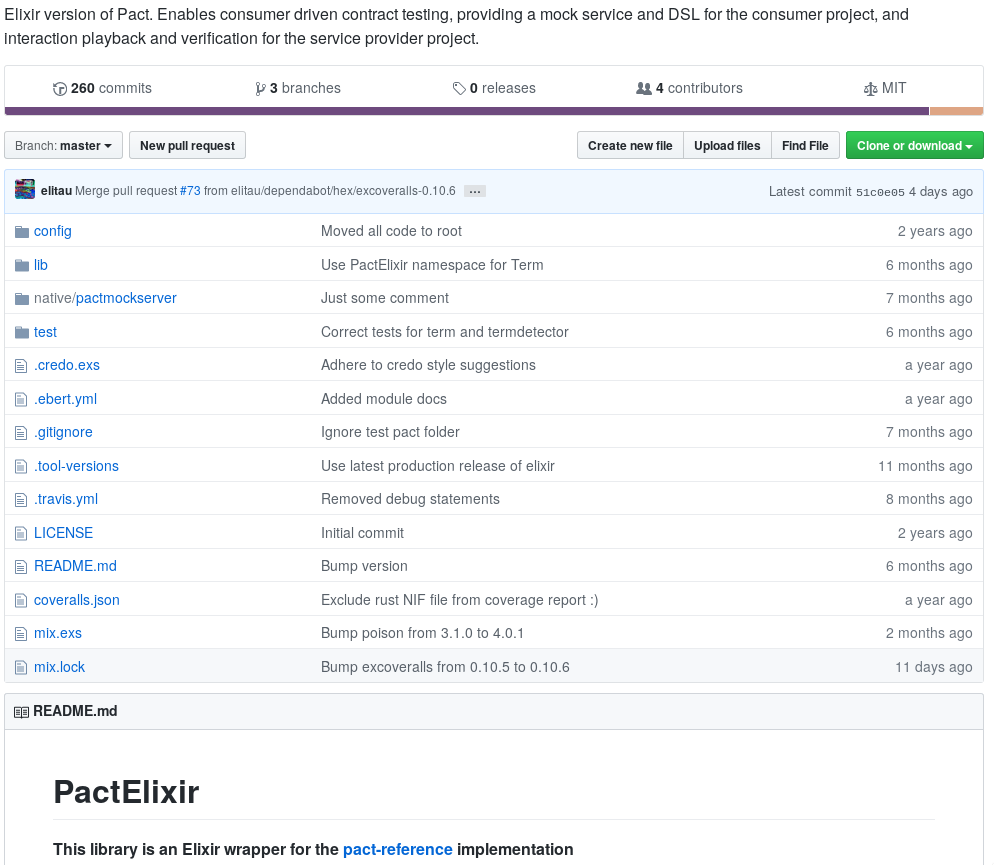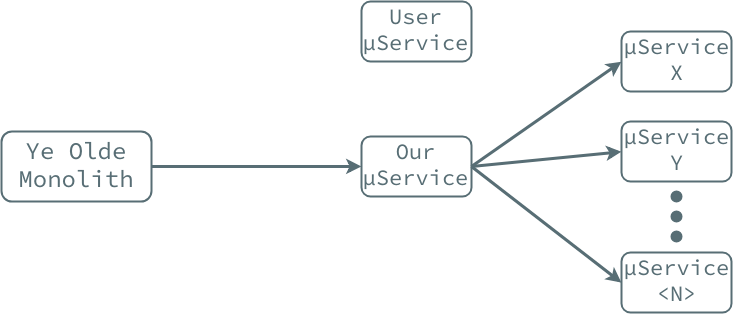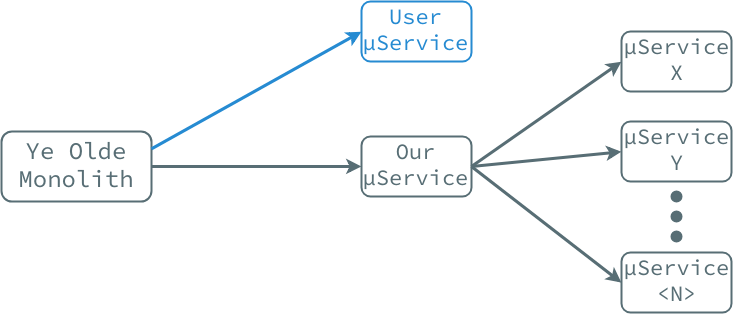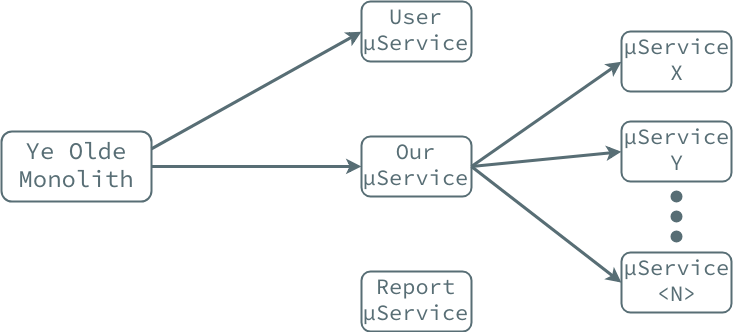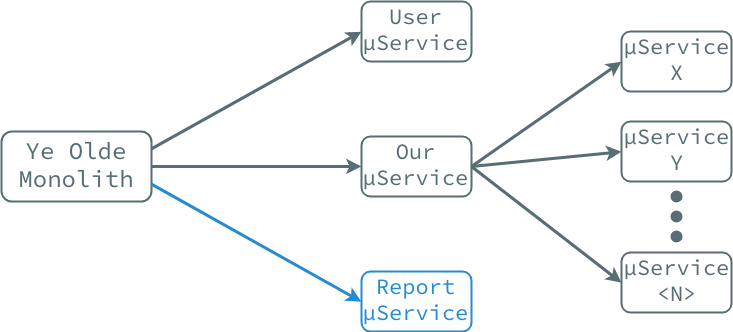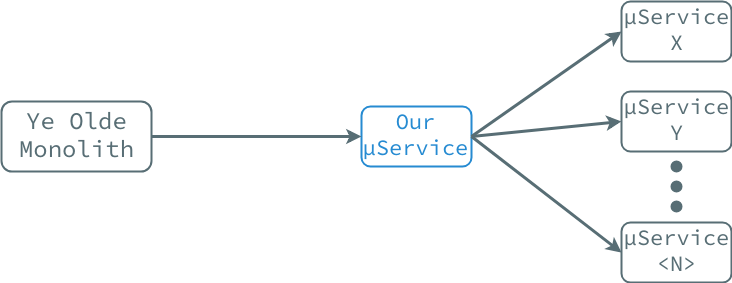A Whirlwind Tour of Testing in Elixir 🚂
Daniel Caixinha
Software Engineer @ 



 @dcaixinha
@dcaixinha

Why?
- Tests are an integral part of any application
- Carelessly built test suites will slow you down
- Redundant coverage will kill morale
- Testing isn't just about catching bugs
- Different types of testing complement each other
- Help build better test suites

The testing pyramid!
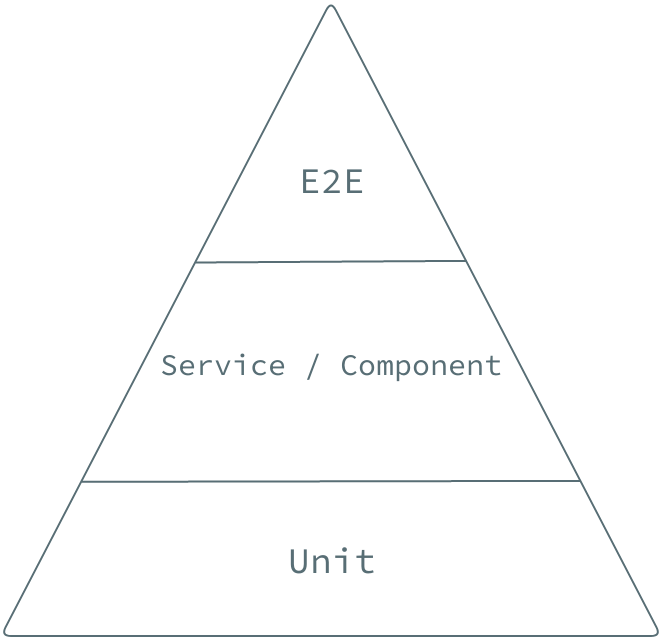

The testing pyramid!
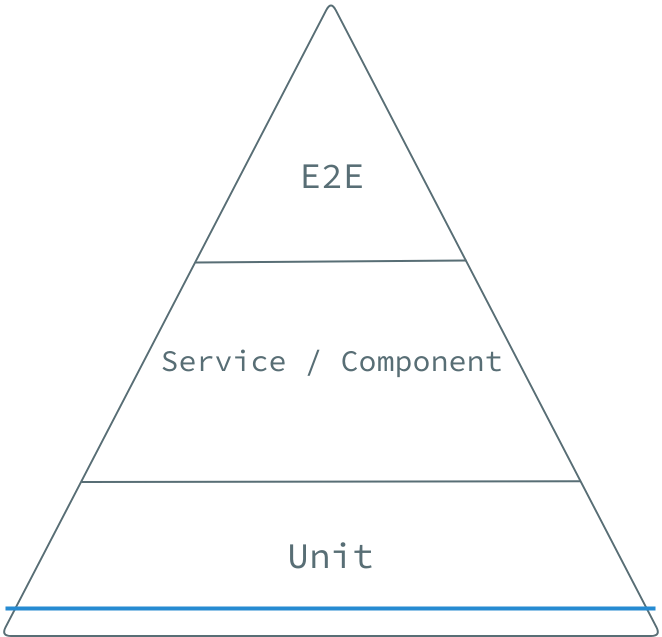

The testing pyramid!
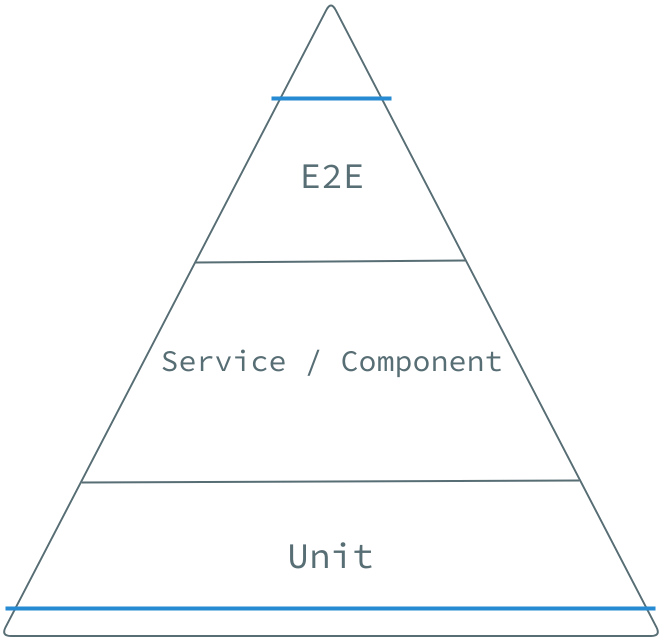

The testing pyramid!
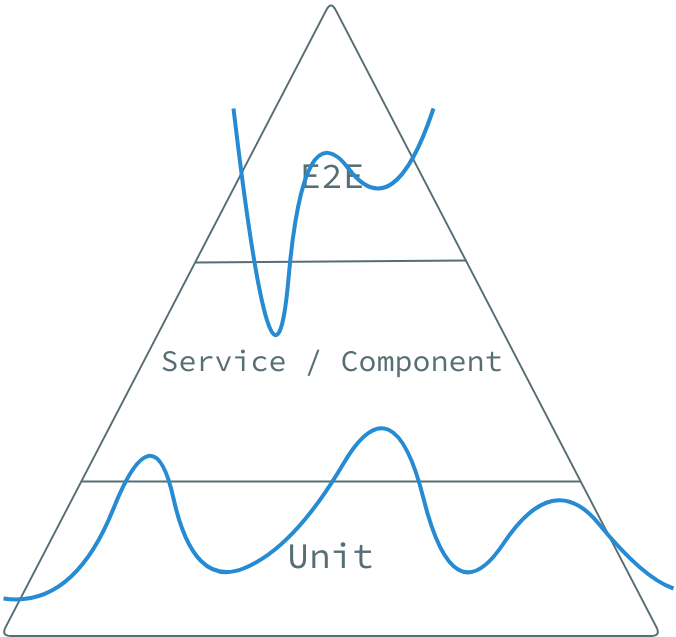

The testing pyramid!
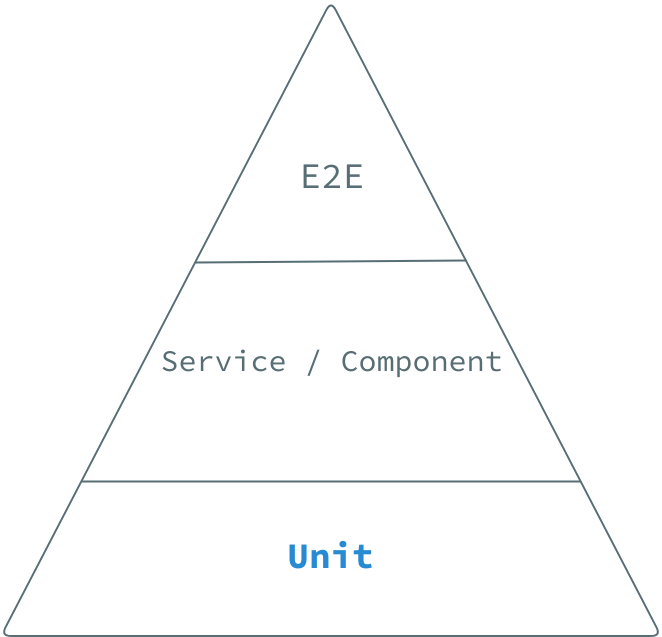

Some "universal" rules
It's not a unit test if:
- it talks to the database
- it communicates across the network
- it touches the file system
- it can't run at the same time as any of your other unit tests
- you have to do special things to your environment to run it.
- – Michael Feathers

Some "universal" rules
It's not a unit test if:
- it talks to the database
- it communicates across the network
- it touches the file system
- it can't run at the same time as any of your other unit tests
- you have to do special things to your environment to run it.
- – Michael Feathers

Detroit-school TDD (a.k.a. classical)
vs.
London-school TDD (a.k.a. mockist)



defmodule Demo.Validators.AddressValidator do
@callback validation_level() :: String.p
@callback set_validation_level(String.p) :: :ok
@callback validate(String.p) :: boolean
def validation_level() do
Application.get_env(:demo, :validation_level)
end
def set_validation_level(level) do
Application.put_env(:demo, :validation_level, level)
end
def validate(address) do
:ok = emit_event("address_validated")
address
|> String.length()
|> validate_length()
end
defp validate_length(address_length) when address_length < 32, do: true
defp validate_length(_address_length), do: false
defp emit_event(event_description), do: Demo.Events.EventEmitter.emit(event_description)
end

defmodule Demo.Validators.AddressValidatorTest do
use ExUnit.Case, async: true
alias Demo.Validators.AddressValidator, as: Subject
describe "when the address is fewer than 32 chars" do
test "it validates the address" do
assert Subject.validate("valid address") == true
end
end
describe "when the address is longer than 32 chars" do
test "it invalidates the address" do
assert Subject.validate("some very very very long address") == false
end
end
end


defmodule Demo.Validators.AddressValidator do
@callback validation_level() :: String.p
@callback set_validation_level(String.p) :: :ok
@callback validate(String.p) :: boolean
def validation_level() do
Application.get_env(:demo, :validation_level)
end
def set_validation_level(level) do
Application.put_env(:demo, :validation_level, level)
end
def validate(address) do
:ok = emit_event("address_validated")
address
|> String.length()
|> validate_length()
end
defp validate_length(address_length) when address_length < 32, do: true
defp validate_length(_address_length), do: false
defp emit_event(event_description), do: Demo.Events.EventEmitter.emit(event_description)
end

test "it sets the validation level to the provided parameter" do
Subject.set_validation_level("some_validation_level")
assert Subject.validation_level() == "some_validation_level"
end


defmodule Demo.Validators.AddressValidator do
@callback validation_level() :: String.p
@callback set_validation_level(String.p) :: :ok
@callback validate(String.p) :: boolean
def validation_level() do
Application.get_env(:demo, :validation_level)
end
def set_validation_level(level) do
Application.put_env(:demo, :validation_level, level)
end
def validate(address) do
:ok = emit_event("address_validated")
address
|> String.length()
|> validate_length()
end
defp validate_length(address_length) when address_length < 32, do: true
defp validate_length(_address_length), do: false
defp emit_event(event_description), do: Demo.Events.EventEmitter.emit(event_description)
end

defmodule Demo.Validators.AddressValidator do
@callback validation_level() :: String.p
@callback set_validation_level(String.p) :: :ok
@callback validate(String.p) :: boolean
@event_emitter Application.get_env(:demo, :event_emitter)
def validation_level() do
Application.get_env(:demo, :validation_level)
end
def set_validation_level(level) do
Application.put_env(:demo, :validation_level, level)
end
def validate(address) do
:ok = emit_event("address_validated")
address
|> String.length()
|> validate_length()
end
defp validate_length(address_length) when address_length < 32, do: true
defp validate_length(_address_length), do: false
defp emit_event(event_description), do: @event_emitter.emit(event_description)
end

# config/config.exs
use Mix.Config
config :demo,
event_emitter: Demo.Events.EventEmitter

# config/test.exs
use Mix.Config
config :demo,
event_emitter: Demo.Events.EventEmitterMock

defmodule Demo.Events.EventEmitterMock do
@callback emit(String.t) :: :ok
def emit("address_validated") do
send(self(), :address_validated_event_emitted)
:ok
end
end

test "it emits the :address_validated event" do
Subject.validate("test address")
assert_receive :address_validated_event_emitted
end

Over time, the mock may (will?) diverge from the real thing

Meanwhile in production…


Enter Mox! 🕺



# mix.exs
defp deps do
[
# ...
{:mox, "~> 0.5", only: :test}
]
end

# test/test_helper.exs
Mox.defmock(Demo.Events.EventEmitterMock, for: Demo.Events.EventEmitter)
ExUnit.start()

defmodule Demo.Validators.AddressValidatorTest do
use ExUnit.Case, async: true
alias Demo.Validators.AddressValidator, as: Subject
import Mox
setup :verify_on_exit!
test "it emits the :address_validated event" do
Demo.Events.EventEmitterMock
|> expect(:emit, fn "validate_address" -> :ok end)
Subject.validate("test address")
end
end

Two testing principles

Don't Mock What You Don't Own




DAMP not DRY

describe "when the address was already validated and the feature flag is enabled" do
setup [:address_already_validated, :enabled_feature_flag]
test "it runs the validation again" do
# ...
end
end
describe "when the address was already validated and the feature flag is disabled" do
setup [:address_already_validated, :disable_feature_flag]
test "it does not run the validation again" do
# ...
end
end

The testing pyramid!
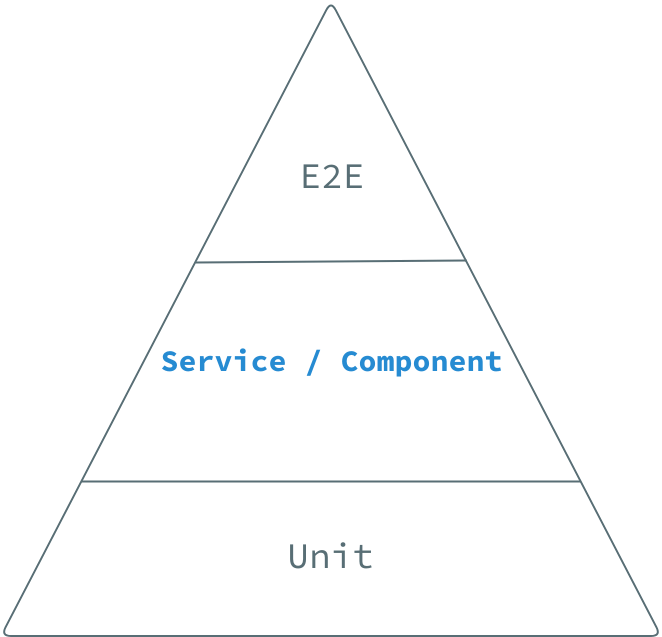

The testing pyramid!





# mix.exs
defp deps do
[
# ...
{:mox, "~> 0.5", only: :test},
{:bypass, "~> 1.0", only: :service_level_test}
]
end

# service_level_test/test_helper.exs
Ecto.Adapters.SQL.Sandbox.mode(Demo.Repo, :manual)
Application.ensure_all_started(:bypass)
ExUnit.start()

defmodule Demo.ServiceLevelTest do
use Demo.DataCase
@address_url "localhost:4000/api/address"
setup do
bypass = Bypass.open()
{:ok, bypass: bypass}
end
test "valid address from Service X renders a successful response", %{bypass: bypass} do
expected_response = %{"data" => %{"address" => %{
"street" => "Sesame St.",
"town" => "Manhattan"
}}}
Bypass.expect bypass, "GET", "/service_x/api/some_endpoint", fn conn ->
Plug.Conn.resp(conn, 200, Poison.encode!(%{status: "ok", valid: true}))
end
{:ok, response} =
HTTPoison.post!(@address_url, Poison.encode!(%{street: "Sesame St.", town: "Manhattan"}))
|> Map.get(:body)
|> Poison.decode()
assert response == expected_response
end
end

Over time, the mock may (will?) diverge from the real thing

Meanwhile in production…


Enter Contract Testing! 🕺






defmodule Demo.PactElixir.ServiceX do
alias PactElixir.PactMockServer
import PactElixir.Dsl
setup do
provider = new_service_provider()
{:ok, mock_server_pid} = start_supervised({PactMockServer, provider})
port = PactMockServer.port(mock_server_pid)
{:ok, mock_server_pid: mock_server_pid, port: port}
end
describe "Demo talks to ServiceX" do
test "check address is valid", %{mock_server_pid: mock_server_pid, port: port} do
expected_response = %{"status" => "ok", "valid" => true}
path = "/api/some_endpoint"
{:ok, response} =
HTTPoison.get!("http://localhost:#{port}#{path}")
|> Map.get(:body)
|> Poison.decode()
assert response == expected_response
assert {:ok} == PactMockServer.write_pact_file(mock_server_pid)
end
end
# ...
end

defp new_service_provider do
%{provider: "ServiceX", consumer: "Demo"}
|> PactElixir.Dsl.service_provider()
|> add_interaction(
"Check if address is valid",
given("Valid address is available to Demo"),
with_request(method: :get, path: "/api/some_endpoint"),
will_respond_with(status: 200, body: %{status: "ok", valid: true})
)
end

defmodule Demo.PactElixir.ServiceX do
alias PactElixir.PactMockServer
import PactElixir.Dsl
setup do
provider = new_service_provider()
{:ok, mock_server_pid} = start_supervised({PactMockServer, provider})
port = PactMockServer.port(mock_server_pid)
{:ok, mock_server_pid: mock_server_pid, port: port}
end
describe "Demo talks to ServiceX" do
test "check address is valid", %{mock_server_pid: mock_server_pid, port: port} do
expected_response = %{"status" => "ok", "valid" => true}
path = "/api/some_endpoint"
{:ok, response} =
HTTPoison.get!("http://localhost:#{port}#{path}")
|> Map.get(:body)
|> Poison.decode()
assert response == expected_response
assert {:ok} == PactMockServer.write_pact_file(mock_server_pid)
end
end
end



{
"consumer": {
"name": "Demo"
},
"provider": {
"name": "ServiceX"
},
"interactions": [
{
"description": "Check if address is valid",
"providerStates": [
{"name": "Valid address is available to Demo"}
],
"request": {
"body": "",
"headers": {},
"method": "GET",
"path": "/api/some_endpoint"
},
"response": {
"body": {
"status": "ok",
"valid": true
},
"headers": {},
"status": 200
}
// ...



The testing pyramid!
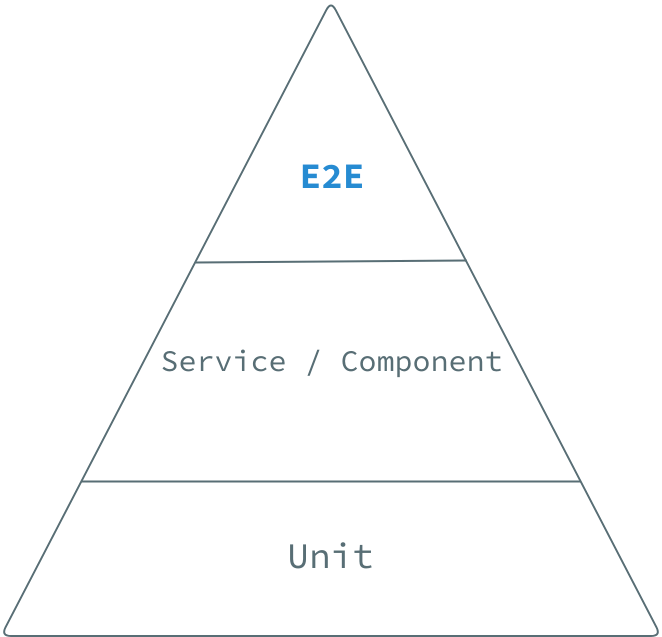

🤷♂️







For Reference:

Where does this leave us?
$ MIX_ENV=test mix test ..................................................................... ..................................................................... ............................. Finished in 6.3 seconds 826 tests, 0 failures, 0 skipped Randomized with seed 687577
$ MIX_ENV=service_level_test mix test ..................................................................... ..................................................................... ....................................................... Finished in 28.2 seconds 196 tests, 0 failures Randomized with seed 283663

Wrapping Up
- Tests are not just about regression safety
- Write your tests as simple and straightforward as possible
- When creating mocks, do so based on behaviours
- Explore different kinds of testing
- Pick the ones right for your context

 &
& 
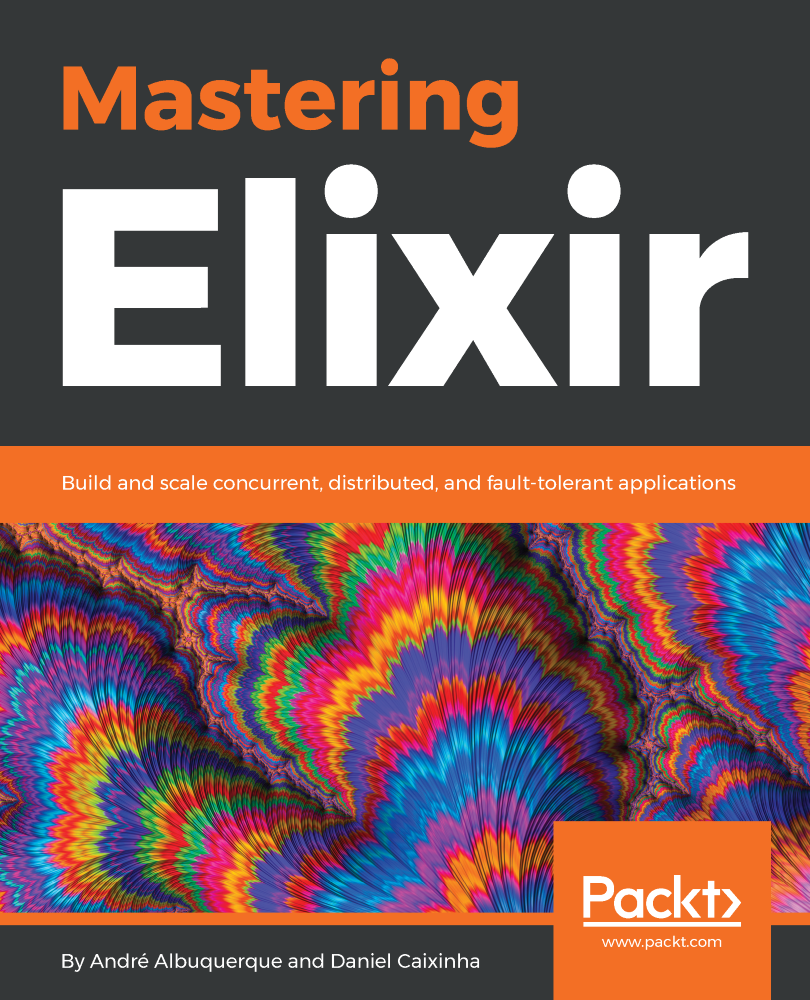


Thank you! 🙇

Questions?



 @dcaixinha
@dcaixinha

